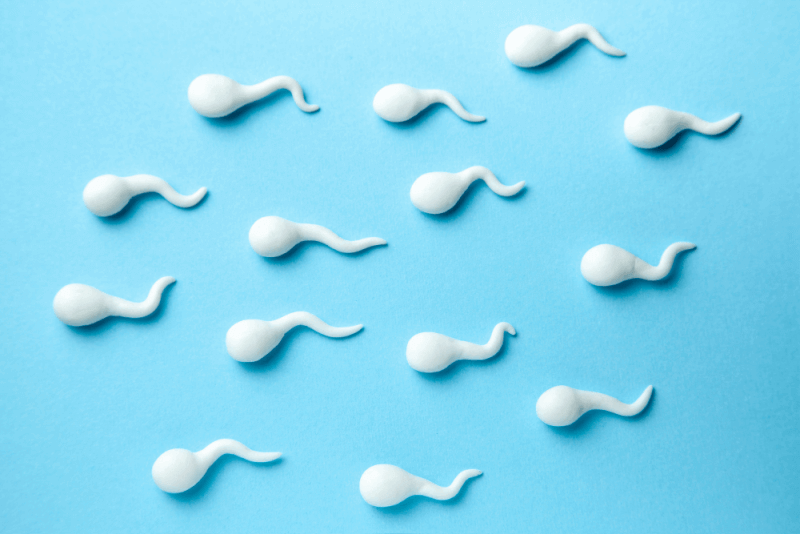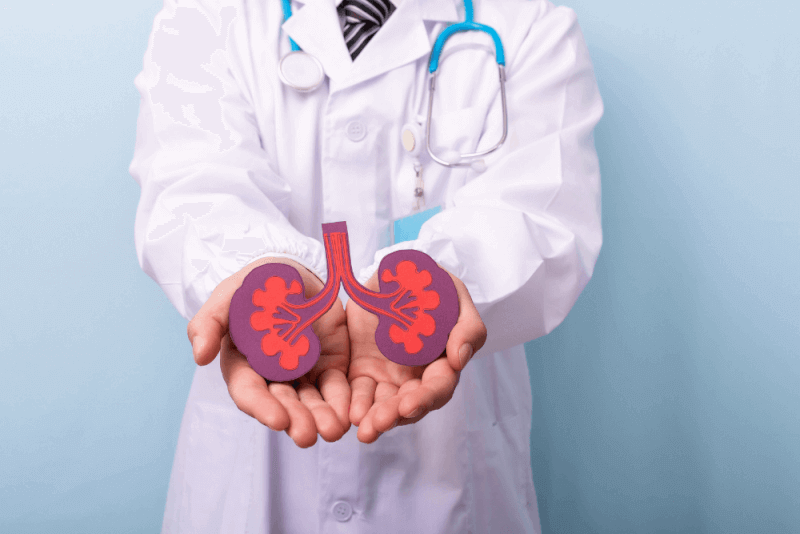What is a urinary tract infection?
Urinary tract infection, one of the most common diseases in the urinary system, can occur in any part of the urinary system. The most common bacteria causing urinary tract infections is E. Coli. Urine
Common sites of urinary tract infection include the urethra, kidneys and bladder.
Urine is a waste produced after the blood is filtered. Under normal conditions, there is no pollution. However, if the urinary tract becomes infected with bacteria for any reason, a urinary tract infection can occur.
Causes of urinary tract infection
Urinary tract infections are usually caused by bacteria. Bacteria that enter the urinary tract through the urethra can infect all parts of the urinary tract. In addition, bacteria can spread to the bladder and kidneys.
The most common cause of urinary tract infection is the E. Coli bacteria. In 90% of cases this bacterium seems to infect. This bacterium is typically found in the large intestine. After E. Coli, Klebsiella, Protus mirabilis and Staphylococcus saprohyticus are the most common bacteria causing urinary tract infections.
Urinary tract infections are more common in women than in men. This is because the width between the urethra and anus is narrower in women than in men. In addition, hand hygiene is among the factors that cause urinary tract infections. Bacteria can be transferred from contact surfaces to hands. Touching the vagina with contaminated fingers afterwards can cause bacteria to reach the urinary tract. To prevent this, hands should be washed after going to and from the toilet and before sexual intercourse.
Symptoms of urinary tract infection
In a urinary tract infection, there is inflammation of the lining tissue inside the urinary tract. For this reason, symptoms commonly seen in patients include the following:
- Blood in the urine (hematuria)
- Pain in the flank, pelvic area, abdomen or lower back
- Pain during urination (dysuria)
- Pressure in the lower part of the pelvis
- Urgent need to urinate
- Foul-smelling urine
- Frequent urination
- Urinary incontinence
- Pain in the penis
- Nausea
- Vomiting
- Feeling extremely tired
- Mental fuzziness
- Fire
- Chills
Urinary tract infection treatment methods
Since urinary tract infections are generally caused by bacteria, antibiotics are used to treat them. For this reason, urinary tract infections should not be treated at home and should be treated by a doctor.
While broad-spectrum antibiotics can be preferred in antibiotic selection, targeted antibiotic use is also possible thanks to urine culture tests. It is very important to follow the instructions for antibiotic treatment. If the patient feels better before the end of treatment, he or she should not stop taking the medication and should continue taking it for the period recommended by the doctor. Otherwise the infection will recur within a short period of time.
For people who have frequent urinary tract infections, the use of antibiotics continues for a longer period of time. Antibiotics are recommended for these patients at various times. These include the following:
- Patients who need antibiotics every day
- Patients who need to take antibiotics every other day
- Patients who need antibiotics after sexual intercourse
- Patients who need antibiotics at the first sign of symptoms
Specific antibiotic drug groups that should be used in urinary tract infection include the following:
- Quinolones
- Fosfomycin
- Doxycycline
- Cephalosporins
- Amoxicillin
- Sulfonamides
- Nitrofuratoin
Can you become immune to antibiotics used to treat the urinary tract?
In particular, patients with frequent urinary tract infections are likely to become immune to antibiotics. For this reason, physicians take this risk into account and plan the treatment correctly.
If patients develop immunity to antibiotics, treatment is more challenging and takes longer. In this case, physicians recommend alternative treatment options. Other treatment options include the following:
- With a watch and wait approach, the system can be cleaned during this time. For this reason, it is recommended to consume plenty of fluids during the waiting period. It is especially necessary to drink plenty of water.
- In some resistant cases or if the infection progresses to the kidneys, hospitalization is recommended. The treatment administered at this time is intravenous therapy. In this treatment, medicines are given intravenously. After discharge, patients may be asked to continue taking oral antibiotics.
Types of urinary tract infections
Urinary tract infections are divided into 3 types. The part affected by the infection is important in the diversification of urinary tract infections. In addition, the areas of infection have different symptoms.
Urethritis
In case of infection in the urethra, which is a hollow tube that allows urine to be excreted from the bladder to the outside of the body, it is called urethritis. The most characteristic symptom of urethritis is burning during urination.
Cystitis
Infection in the bladder is called cystitis. It is caused by bacteria coming up the urethra. Characteristic symptoms of cystitis include the following.
- Pelvic pressure
- Blood in the urine
- Lower abdominal discomfort
- Frequent urination
- Pain during urination
Pyelonephritis
Pyelonephritis is an infection of the kidneys caused by infection or obstruction in the urinary tract. Blockage in the urinary tract causes urine to leak into the kidneys. Characteristic symptoms of pyelonephritis include the following:
- Pain in the back or sides
- Vomiting
- High fever
- Nausea
- Tremor
- Chills
Urinary tract infection that does not go away
Chronic urinary tract inflammation is a condition that occurs when treatment is carried out correctly but without successful results. In some cases, it may recur some time after a positive response to treatment.
The diagnosis of chronic urinary tract infection requires a positive urine culture 3 times within a 12-month period or a second recurrence of urinary tract infection within 6 months.
Cold and urinary tract infection
Studies on cold climatic conditions and body cooling show that cold stress due to body cooling increases the risk of some lower abdominal infections, such as urinary tract infections. Studies show that urinary tract infection is a defense mechanism used to protect people from hypothermia.
Among the points that people who constantly want to urinate and urinary tracts in the cold months should pay attention to are the following.
Staying warm
Keeping the body warm reduces the risk of hypothermia and therefore reduces the likelihood of defense mechanisms being activated. Keeping the body warm also reduces the likelihood of diuresis. This is why it is important to dress in layers and stay indoors warm on cold days.
Consuming enough water
Urinating more than usual on cold days can also cause the body to lose water. For this reason, it is necessary to take care to consume more fluids than usual, especially during these months. Dehydration can lead to disruption of the body's normal functions.
Being careful
It is important to carefully monitor the changes experienced during the cold months and catch the symptoms at an early stage.
Urinary tract infection during pregnancy
The most common bacterial infection during pregnancy is urinary tract infection. Different types of urinary tract infection can also occur during pregnancy. In some cases, urinary tract infections do not cause any symptoms and are discovered by chance.
Symptoms of urinary tract infection during pregnancy
The symptoms of urinary tract infection during pregnancy are similar to the symptoms of urinary tract infection at any other time. For this reason, the symptoms include the following:
- Burning sensation when urinating
- Fire
- Sensation of urinating more often than usual
- Pain above the pubic bone
- Urinary incontinence
- Cloudy, bloody or smelly urine
- Feeling that the bladder is not completely empty after urinating
Is a urinary tract infection dangerous during pregnancy?
Many changes that occur in the body during this process, especially due to changes in the immune system during pregnancy, cause urinary tract infections. Especially with the growth of the baby, pressure on the bladder and incomplete emptying of the bladder is the biggest cause of urinary tract infection.
Having a urinary tract infection during pregnancy leads to an increased risk of high blood pressure. It can also happen that the baby is born prematurely and at low birth weight. This is why a urinary tract infection needs to be treated as soon as possible.
Urinary tract infection in children and infants
Urinary tract infections are among the most common infections in children and babies. However, since children's immune systems are not sufficient to fight this infection, it is necessary to consult a doctor as soon as possible. Treatment for urinary tract infection during this period usually lasts one week.
Symptoms of urinary tract infection in children and infants
Urinary tract infections in children usually occur in the urethra or bladder. For this reason, the symptoms of urinary tract infection in children include the following.
- Burning or stinging sensation when urinating
- Urine that looks cloudy or smells bad
- Frequent urination
- Decrease in the amount of urine
- Fire
- Frequent waking up at night to go to the toilet
- Abdominal pain in the bladder area
- Bedwetting in children with toilet training
In case of infection in the kidneys of children, in addition to the symptoms mentioned above, there are also the following symptoms:
- Sick appearance in children
- Fire
- Tremor
- Back and side pains
- Severe fatigue
- Vomiting
Risks of urinary tract infections in children
Urinary tract infections are more common in girls than boys. This is because their urethra is shorter and closer to the anus. In addition, the risk of urinary tract infections increases in boys under 1 year of age and uncircumcised boys. In addition, factors that increase the risk of urinary tract infections in children include the following.
- A structural problem in your urinary tract
- Backflow of urine from the bladder into the ureters or kidneys
- Poor toilet and hygiene habits
- Family history of urinary tract infection
How does a urinary tract infection affect the kidneys?
Chronic urinary tract infections increase the likelihood of kidney damage. If chronic urinary tract infection is not treated properly, the following are among the damages that can be seen in the kidney.
- Kidney apnea
- Kidney failure
- Kidney damage
- Hypertension
- Infection into the bloodstream
- Permanent kidney damage
- Chronic pyelonephritis
How to prevent urinary tract infections?
Especially people with frequent urinary tract infections can get rid of urinary tract infections by making some lifestyle changes. Paying attention to the following points, especially in chronic urinary tract infections, will reduce the likelihood or frequency of recurrence.
Complying with hygiene rules
Strict adherence to hygiene rules is extremely important in preventing urinary tract infections. Especially women should pay more attention to this point. Because it is easier for E. Coli bacteria to be transmitted from the rectum to the vagina. For this reason, cleaning should be done from front to back after the toilet needs are met.
During menstruation, care should be taken to change the hygienic products used at the required intervals. In addition, the use of soap, vaginal cleansers or deodorants for cleaning the vagina should be avoided. Because these products disrupt the natural bacterial flora of the vagina and make it more susceptible to infections.
Drink plenty of fluids
It is important to drink healthy amounts of fluids regularly every day. Herbal or fruit teas can also be consumed. In this way, it is possible to clean the bacteria in the urinary tract.
Changing urinary habits
Urine is extremely important for clearing bacteria from the urinary tract. As a result, urine is the body's waste material and the emptying of the bladder gets rid of this waste material. For this reason, frequent urination, especially for people with urinary tract infections, will help clear the infection and reduce the risk of infection.
Urination is also required before and after sexual intercourse. Because bacteria are transmitted during sexual intercourse. If urination is not possible before sexual intercourse, the area should be cleaned with warm water.
Changing birth control methods
The use of a diaphragm as a contraceptive by some women increases the risk of urinary tract infections. For this reason, other methods of contraception should be used.
Use of water-based lubricant
It is recommended that people who use lubricants during sexual intercourse prefer water-based lubricants. Especially people with frequent urinary tract infections should avoid spermicidal lubricants.
Clothes
Preference for tight clothing increases the risk of urinary tract infections. Because these clothes can create a humid environment. To prevent this, loose and cotton clothes should be preferred.
Medicines
Especially the creams containing estrogen used by postmenopausal women cause the bacterial flora of the vagina to change. This leads to an increased risk to the urinary tract. For this reason, patients who are in menopause and have frequent urinary tract infections should discuss this with their physician.











